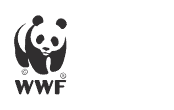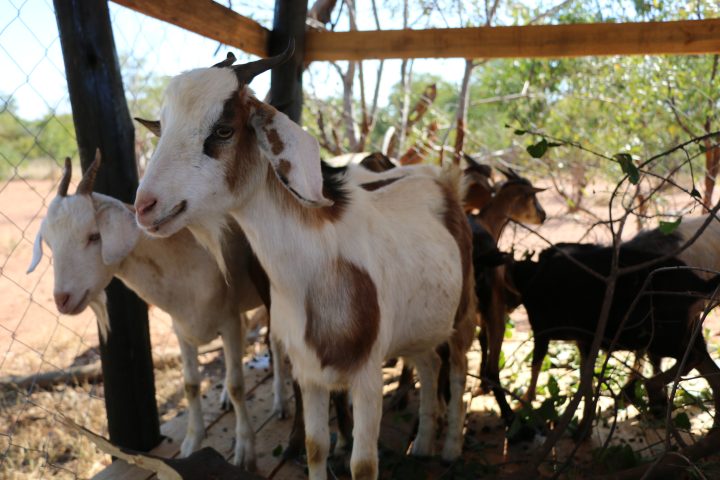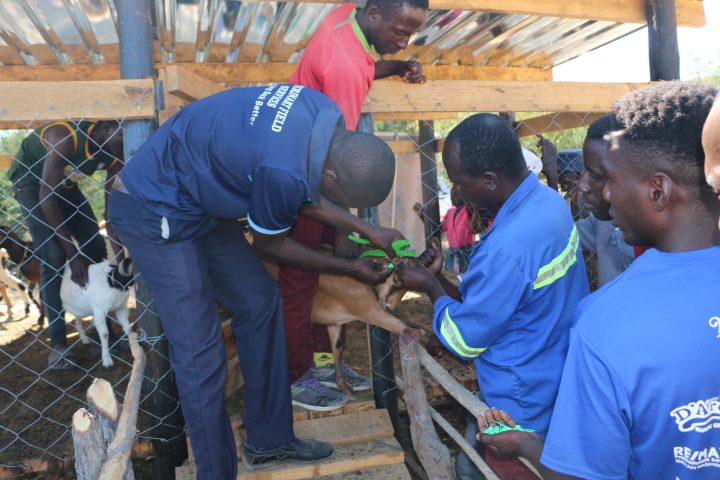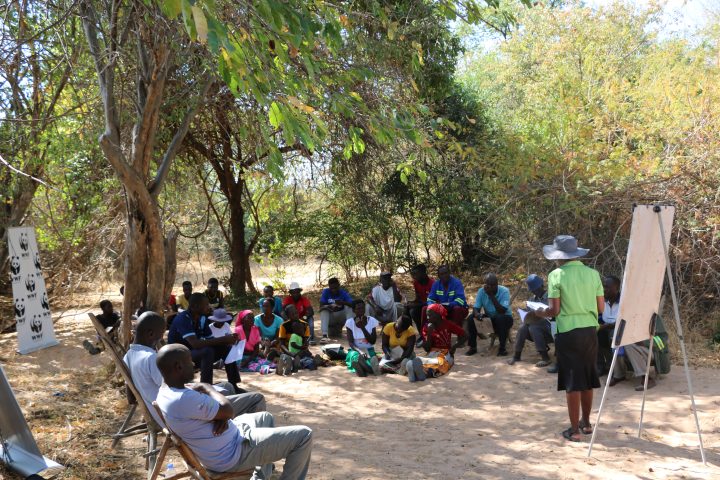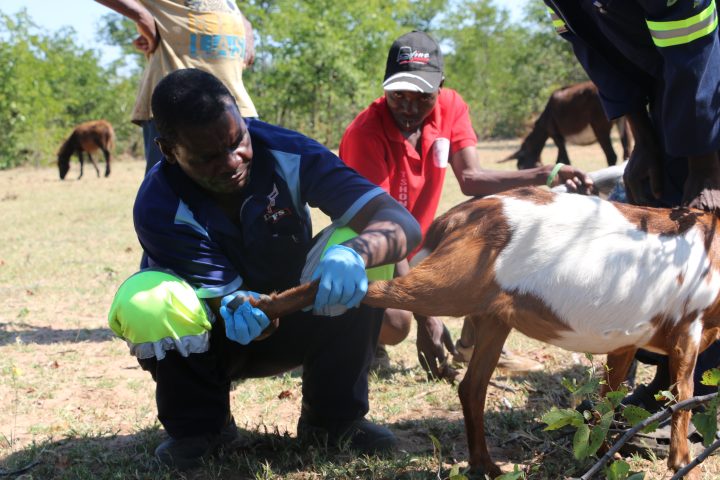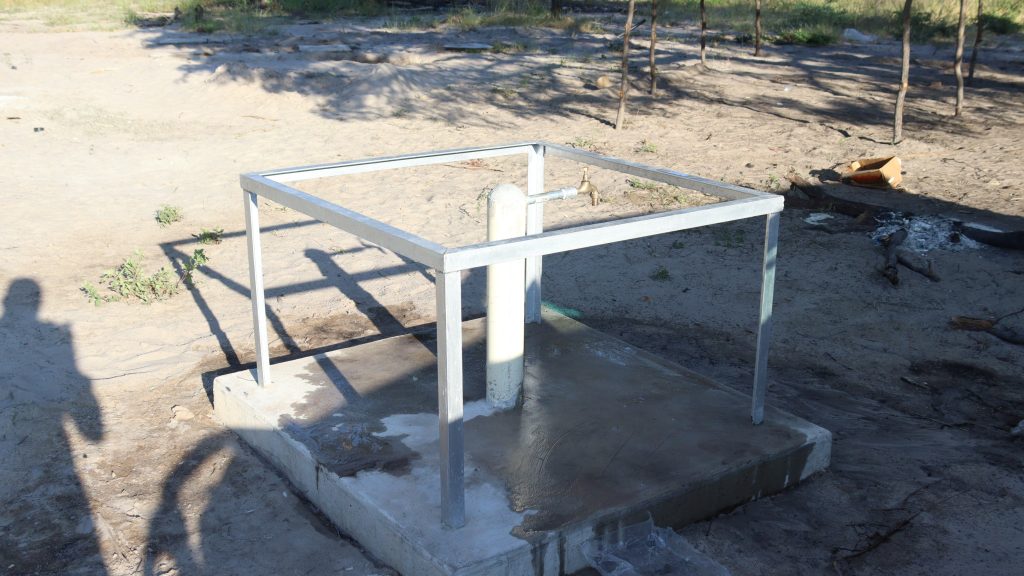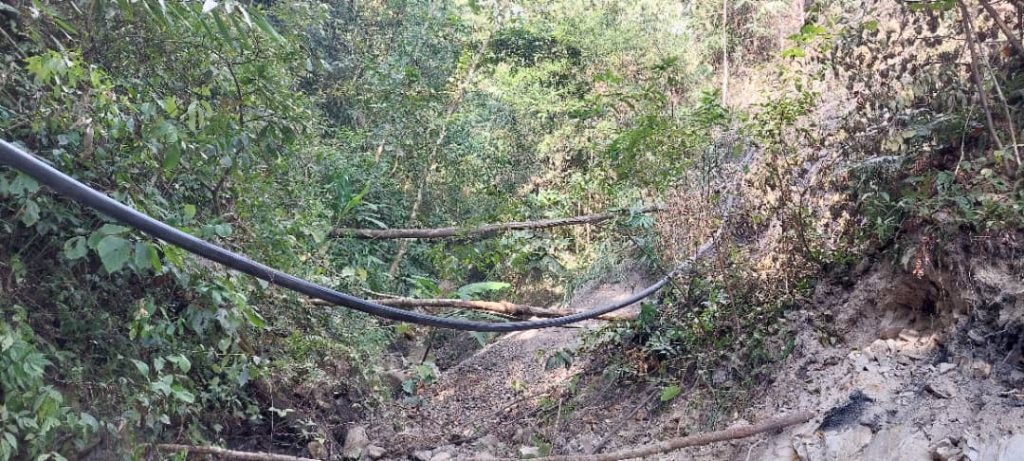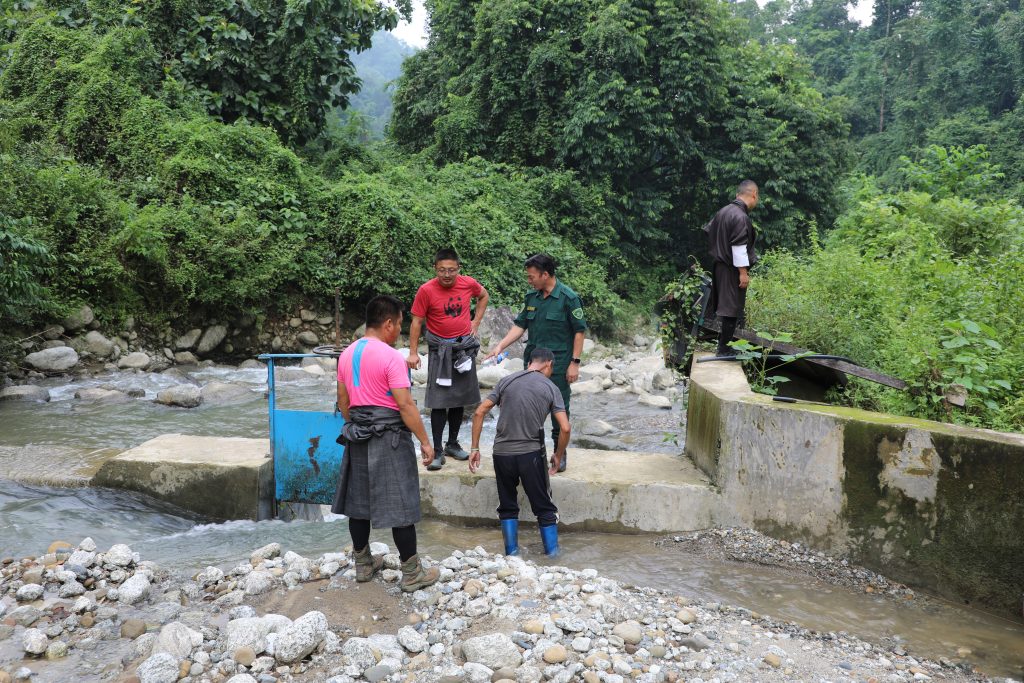Purpose
Create alternative sustainable livelihoods and reduce hunger by supplying 40 households in Zimbabwe with resilient goat breeds.
Climate Impacts
The following impacts were reported by communities in Manjolo, Pashu, and Mpanedziba:
• Loss of water source due to decreased rainfall and extreme heat
• Increased human-wildlife conflict as both compete for the same resources
• Livestock mortality due to lack of water and suitable pasture
• Reduction in crop yields and wild fruits
• Reduced income generation due to declining agriculture yields
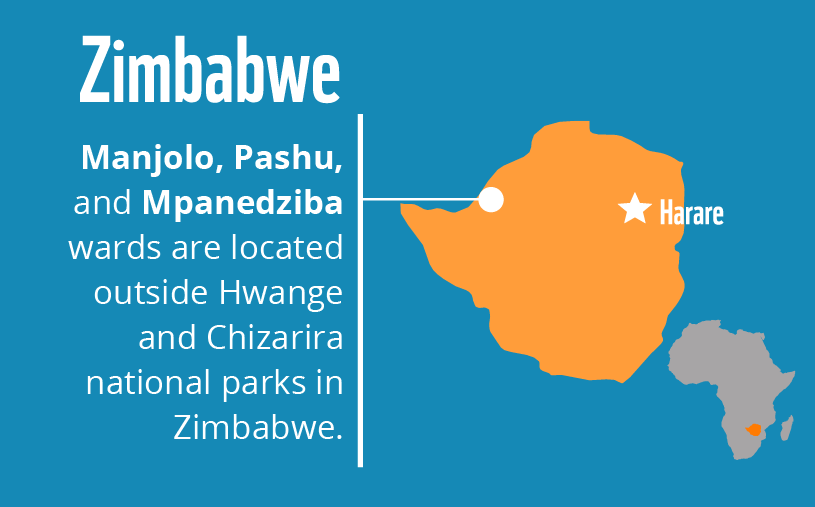
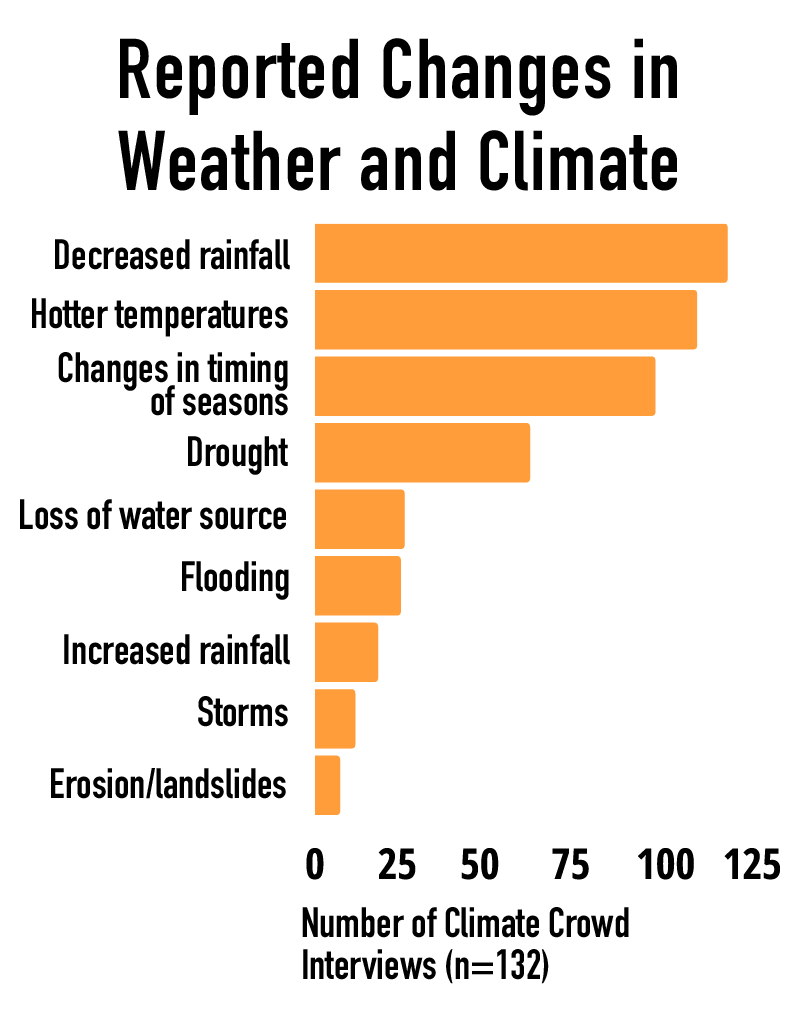
Activities
Identification of Sites
Three target sites were selected by communities during engagement sessions.
Selection of local committees
Community members established committees that would be responsible for the project on behalf of all the beneficiaries.
Construction of predator-proof goat kraals
Three goat kraals–one per ward–were constructed in the selected areas. The kraals were designed using wire fencing, metal roofing, and timber to prevent predators from accessing the goats.
Goat procurement
20 indigenous goats per ward were procured locally within the communities, totalling sixty goats for all three target wards.
Veterinary inspection
All goats were assessed and inspected by authorities from the veterinary department to ensure that they were healthy and fit for purposes of reproduction.
Goat Management Training and Ear-Tagging
Beneficiaries received training on proper goat management including basic nutrition and health, as well as common diseases and how to prevent and treat them. These trainings help to preserve and enhance the financial value of the goats, ultimately increasing revenue for the community members if they decide to sell the goats and/or their products. Goats were also tagged for ease of identification.
project outcomes
project design
Livestock production remains one of the most critical components of community livelihood in Zimbabwe. Climate induced impacts like decreased rainfall, drought, and increased heat have significantly influenced livestock mortality rates as cattle (the primary species of livestock) are not adept to survive in such extreme conditions. In order to alleviate the financial and nutritional stress suffered by communities due to the lack of agricultural productivity, this project supplied twenty goats to each community. Goats–specifically indigenous breeds–serve as ideal alternative livelihood options due to their resilience to extreme climatic conditions as well as their low water and forage requirements in comparison to cattle. To ensure the safe and responsible management of the new goats, community committees were set up to oversee the establishment of this project and manage it over time.
Project activities included the construction of kraals for the goats to protect them from predators. Each kraal is capable of holding up to thirty goats. The kraals were constructed of treated poles, zinc roofing sheets, timber, and wire fencing. An external contractor was selected to carry out the construction work and community members provided assistance. Once the kraals were constructed and the goats were procured, livestock experts conducted goat management trainings focused on goat health, housing, financial benefits, and nutrition. These trainings are essential for long-term project success and will help ensure a healthy and profitable goat population.
Goat initiative set-up process in three target wards
“We are grateful to WWF and its partner organizations as the introduction of the pilot goat scheme will enable us to generate income that will assist in meeting our day to day needs as well as assist us with funds to take our children to school”-Lead Female Farmer (Manjolo, Binga)
